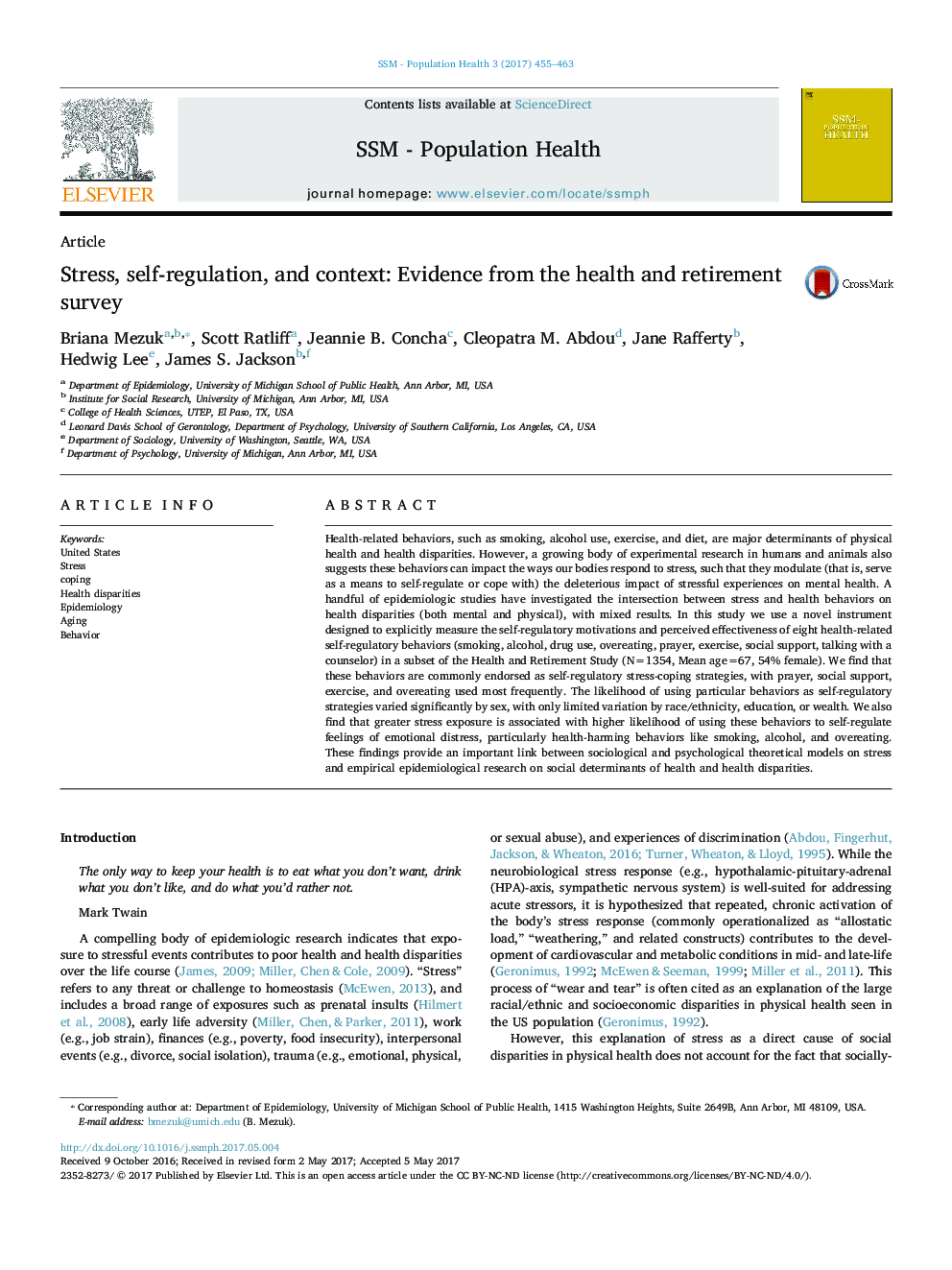| Article ID | Journal | Published Year | Pages | File Type |
|---|---|---|---|---|
| 5123278 | SSM - Population Health | 2017 | 9 Pages |
â¢Most people engage in a wide range of self-regulatory behaviors.â¢Behaviors vary in their perceived effectiveness at reducing emotional distress.â¢Women are more likely to engage in self-regulatory behaviors to cope with stress.â¢Little variation in use of self-regulatory behaviors by race, education, or wealth.â¢Stress was associated with greater use, particularly of health-harming behaviors.
Health-related behaviors, such as smoking, alcohol use, exercise, and diet, are major determinants of physical health and health disparities. However, a growing body of experimental research in humans and animals also suggests these behaviors can impact the ways our bodies respond to stress, such that they modulate (that is, serve as a means to self-regulate or cope with) the deleterious impact of stressful experiences on mental health. A handful of epidemiologic studies have investigated the intersection between stress and health behaviors on health disparities (both mental and physical), with mixed results. In this study we use a novel instrument designed to explicitly measure the self-regulatory motivations and perceived effectiveness of eight health-related self-regulatory behaviors (smoking, alcohol, drug use, overeating, prayer, exercise, social support, talking with a counselor) in a subset of the Health and Retirement Study (N=1354, Mean age=67, 54% female). We find that these behaviors are commonly endorsed as self-regulatory stress-coping strategies, with prayer, social support, exercise, and overeating used most frequently. The likelihood of using particular behaviors as self-regulatory strategies varied significantly by sex, with only limited variation by race/ethnicity, education, or wealth. We also find that greater stress exposure is associated with higher likelihood of using these behaviors to self-regulate feelings of emotional distress, particularly health-harming behaviors like smoking, alcohol, and overeating. These findings provide an important link between sociological and psychological theoretical models on stress and empirical epidemiological research on social determinants of health and health disparities.
